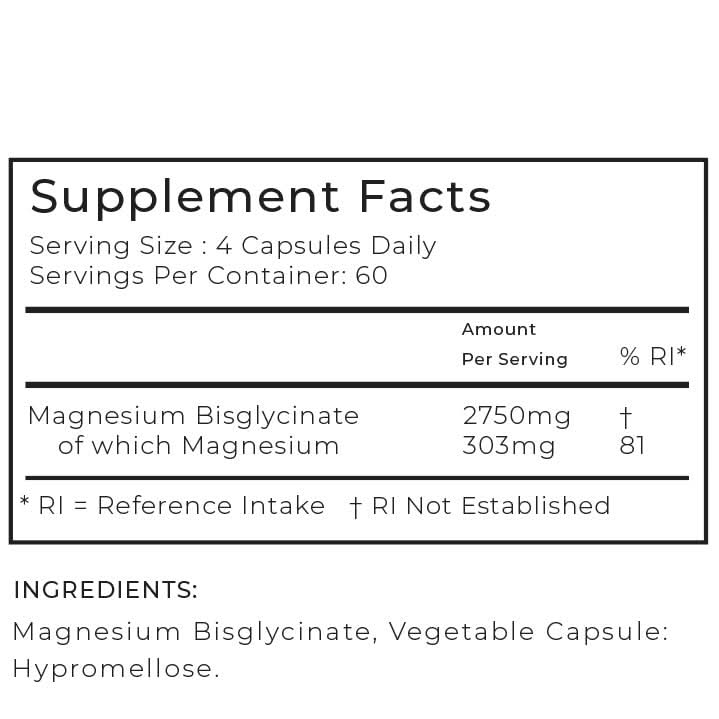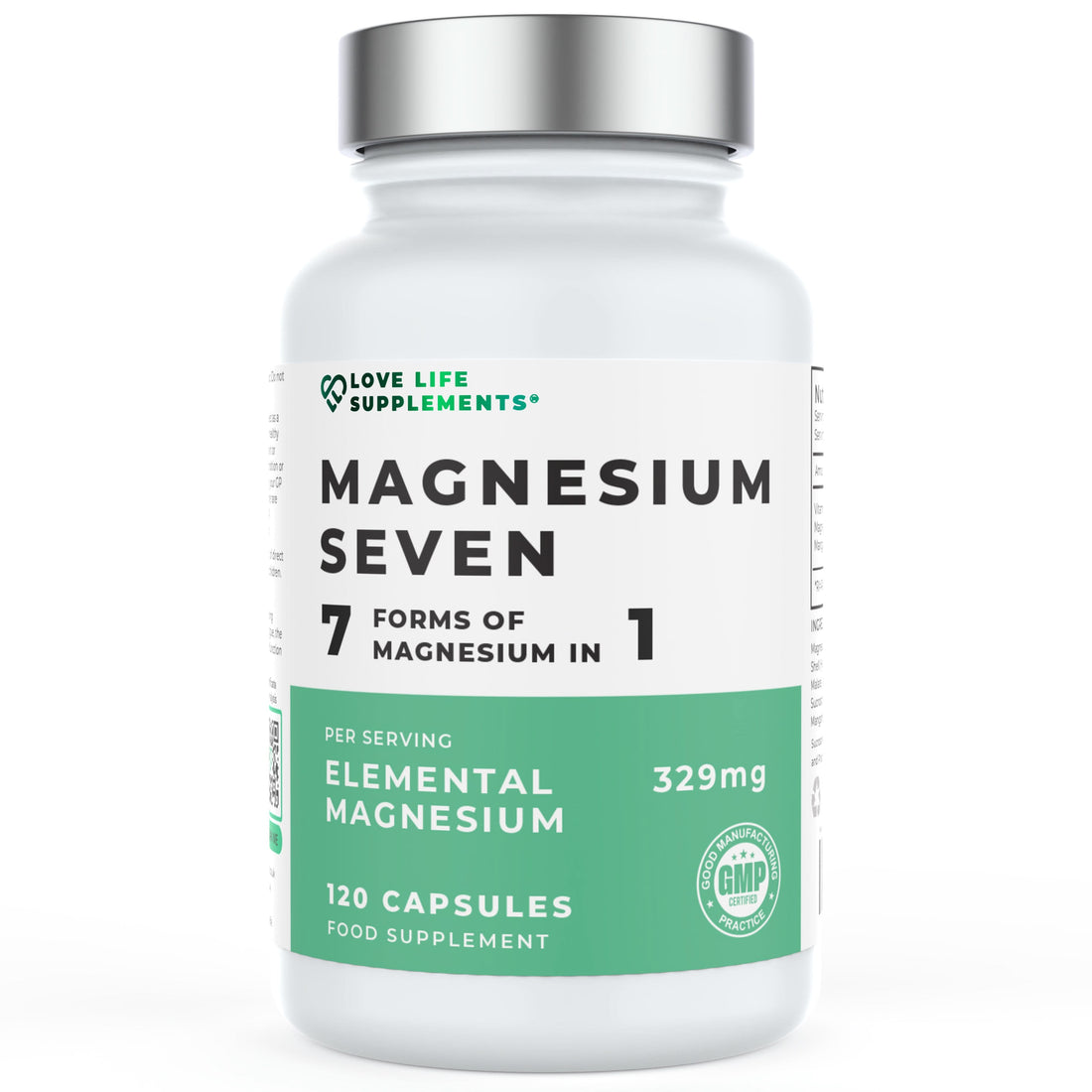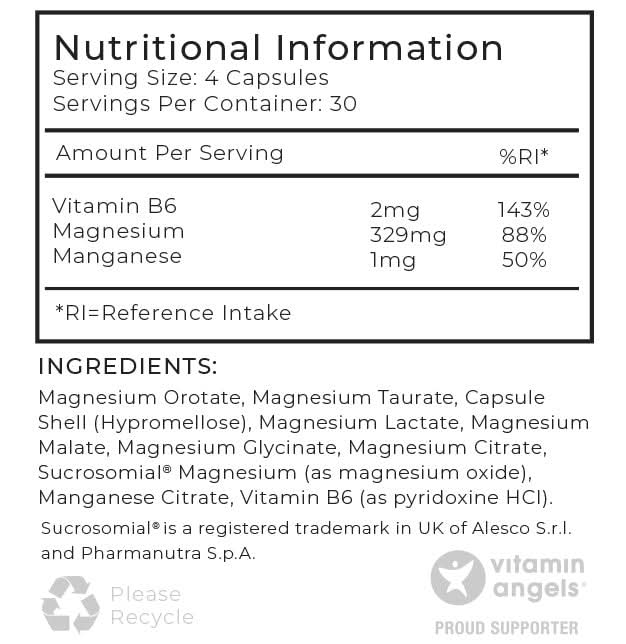Clean Magnesium Supplements
Clean magnesium supplements are formulated without unnecessary additives, fillers, or artificial ingredients—focusing instead on purity, bioavailability, and transparency. At Love Life Supplements, we define “clean” as free from bulking agents and proprietary blends, using only scientifically supported forms of magnesium in their most effective doses.
Magnesium itself is an essential mineral that plays a crucial role in numerous physiological processes in the body. It is involved in over 300 enzymatic reactions, including the synthesis of proteins, nucleic acids, and antioxidants, as well as the regulation of blood pressure, glucose levels, and nerve function. In the human body, the majority of magnesium is stored in bones and teeth, while the rest is found in muscles, soft tissues, and bodily fluids.
Why Supplement with Magnesium?
Despite its availability in food sources, magnesium deficiency is relatively common, affecting about 2% of the general population. Risk factors for deficiency include older age, certain medications (like diuretics), gastrointestinal diseases, and conditions like diabetes that affect magnesium absorption. Symptoms of magnesium deficiency can range from mild to severe and may include muscle cramps, fatigue, irregular heartbeat, and even seizures in extreme cases.
Daily Requirements and Natural Food Sources
The recommended dietary allowance (RDA) for magnesium varies by age, sex, and life stage, but generally, adult men require about 400–420 mg/day, and adult women need about 310–320 mg/day. Magnesium is naturally abundant in a variety of foods such as leafy green vegetables, nuts, seeds, and whole grains. It is also added to some fortified foods and is available as a dietary supplement in various forms, including magnesium bisglycinate, magnesium citrate, and magnesium chloride—popular formats of magnesium supplements.
How to Consume
Magnesium Capsules
At Love Life Supplements, we exclusively use magnesium capsules. They’re clean, convenient, and free from unnecessary fillers—making them easy to digest and ideal for daily use. Take them with water, preferably alongside food to support optimal absorption. Many customers choose to take magnesium bisglycinate in the evening due to its calming effects on the nervous system. Always follow the dosage guidance on the label.
Magnesium Powder
Magnesium powder is commonly dissolved in water or juice and can be absorbed quickly by the body. It allows for flexible dosing but may not be ideal for those sensitive to taste or texture. Our Ultimate Electrolytes contains 150mg of magenesium powder
Magnesium Tablets
Magnesium tablets are a familiar option, often compact and cost-effective. However, some contain binders or bulking agents that can affect digestibility and absorption.
Benefits of Magnesium Supplements
Natural magnesium supplements are widely used to help reduce symptoms of magnesium deficiency and support overall wellness. Research suggests magnesium may help reduce the frequency of migraines, improve symptoms of anxiety and depression, regulate blood pressure, and support insulin sensitivity. While magnesium supplements are generally safe, excessive intake may cause side effects such as diarrhoea, nausea, or cramping. In rare cases, magnesium toxicity can lead to more serious issues like low blood pressure or respiratory distress.
How We Source
At Love Life Supplements, we prioritise purity, transparency, and effectiveness. Our clean magnesium supplements are made in the UK, GMP-certified, and third-party lab tested for quality and consistency. We avoid unnecessary fillers or proprietary blends, using only well-researched, bioavailable forms of magnesium—like magnesium bisglycinate and magnesium citrate—to ensure you get maximum benefit in every dose.

 Magnesium GlycinateMagnesium Glycinate
Magnesium GlycinateMagnesium Glycinate
 Ultimate ElectrolytesUltimate Electrolytes
Ultimate ElectrolytesUltimate Electrolytes
 Electrolyte BalanceElectrolyte Balance
Electrolyte BalanceElectrolyte Balance








